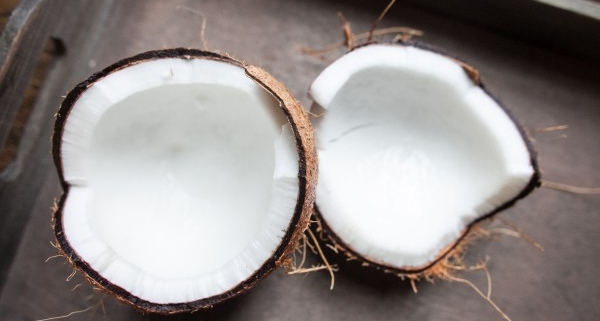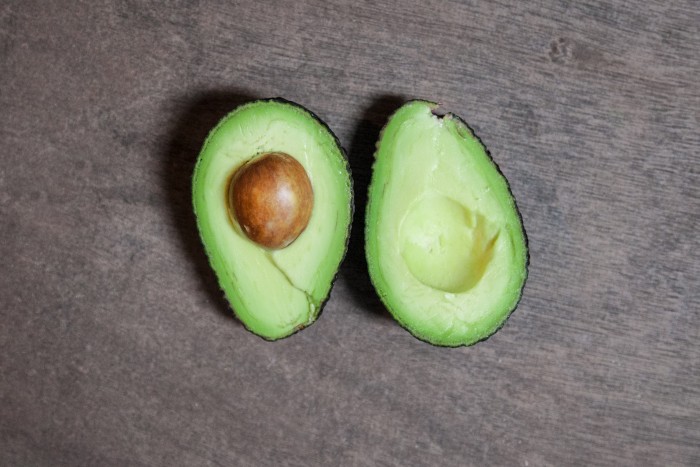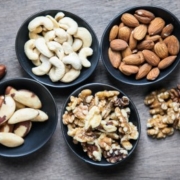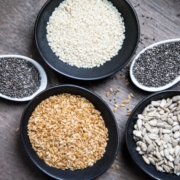Often times when we talk about fat in our foods we cast fat as the indelible bad guy—clogging arteries, elevating blood pressure, and generally ruining bathing suit season. However, it is important to note that not all fat is bad fat. In fact, our brain tissue is made of 60% fat, which means we need fat in our diet to support our brain tissue.
High quality fats, like monounsaturated fats, can address cognitive issues, and are actually heart healthy! The real villains are processed fats, like trans fats, corn oil, sunflower oil, safflower oil, soybean oil, and canola oil. These “bad fats” can be found in fruit rollups and processed Dannon yogurts, Nabisco cookies, donuts, muffins, and many other commonly consumed processed foods. Watch out for these fats because they are not food for the brain, or the rest of your body. Many processed foods that claim to be “fat free” are anything but. Manufacturers can claim a product is trans fat free, when in reality it contains up to .5 grams per serving.
A common pitfall is to turn to “fat free” foods. When food companies remove healthy fats from foods, they also remove flavor. To make up for the loss of flavor, the frequent solution is to dump a bunch of extra SUGAR into the mix, thus trading the healthy, and often wrongly demonized fats, for something that is on the whole, much worse for you.
The best solution to the fat conundrum is to try to buy unprocessed, whole foods that are rich in antioxidants, vitamins, minerals and yes, healthy fats.
In teens and young adults especially, healthy fats in their diet are key to supporting the developing brain tissue. SAT’s are a lot easier to study for with fat fortified brain tissue! It is not only beneficial for the young developing brain – studies also indicate that “good fats” are helpful for middle-aged brain development.
Neurology magazine published a study assessing the levels of omega-3 fatty acids in red blood cells and brain volume in more than 1,000 postmenopausal women, and the results showed a larger than normal brain and hippocampal volume in women with the highest levels of omega-3s. The hippocampus is the region of the brain involved with memory, specifically long-term memory, and is affected by dementia.
More and more doctors are using omega-3 oils, polyunsaturated fats (rich in DHA and EPA) to treat ADHD, depression, and concentration issues. Monounsaturated fats, such as olive oil, avocado oil, almonds, and egg yolks have been shown to increase the production of acetylcholine, a neurotransmitter that plays a key role in learning and memory. With all of this information, it’s clear that we need these healthy fats for short and long term brain health, both when the brain is developing and as we age.
To help you on your quest to consume healthy fats, and support brain health, here is a list of cooking oils to substitute the processed oils that may be sitting in your pantry.
OILS TO USE FOR BRAIN HEALTH:
Ideal for Hot Use
– coconut oil
– palm oil
– butter
– ghee
– lard
– full fat dairy
Ideal for Cold Use
– olive oil
– sesame oil
– walnut oil
– macadamia oil
– pecan oil
– flaxseed oil
– avocado oil
OILS TO AVOID:
– margarine
– partially hydrogenated oils (found in I Can’t Believe It’s Not Butter and other processed spreads)
– canola oil
– safflower oil
– sunflower oil
– soybean oil
– corn oil
– vegetable oil
Here is a fantastic PDF to download and bring to the store for reference:










